How to use The JobTIPS Transition Toolbox DEMO
From the navigation bar, you can explore the many topics covered in this toolbox. Demo users can access the overview page of each section, plus the Keeping a Job -> Basic Skills -> Questions & Interruptions page, to get an idea of the level of detail available to paid subscribers.
![]()
Welcome to the JobTIPS Transition Toolbox!
The JobTIPS Toolbox Pro is filled with resources to help with the often overwhelming tasks of finding and keeping a job. Instructors will find here tools that will help them as they work with their students to assess their skills, find and apply for jobs, and practice the social skills needed to do well in the workplace. These resources will be helpful for any job training or coaching program, and are also especially adapted for students with social communication differences. Self assessments, visual supports, graphic organizers, social stories and comics, and video modeling are just some of the tools available in the JobTIPS Toolbox PRO. From the resume to the interview to the first day at work and beyond, the JobTIPS Toolbox PRO covers every step towards helping students succeed on the job.
Teaching Guide
The Teaching Guide provides instructors with the information they need to build a job skills curriculum for students of all abilities. Instruction techniques based on the latest research in social skills building will help ensure student success. This unit also provides an introduction to each of the resource types found in the JobTIPS Toolbox PRO and tips for using the resources in the instructional environment.
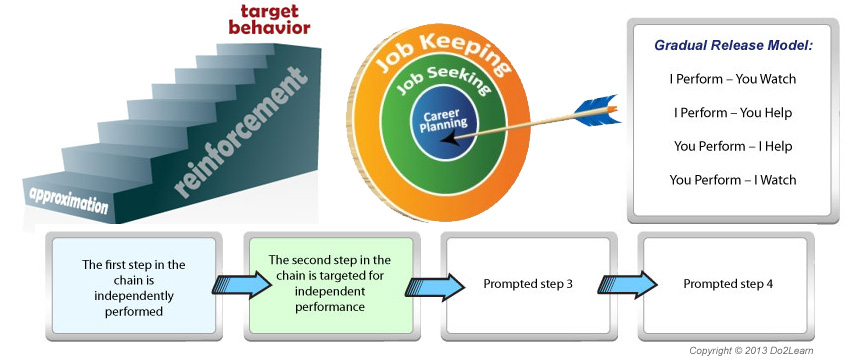
Determining Interests
In the Determining Interests unit, instructors will find resources that will help their students identify fields of interest and assess the skills needed for different jobs. The work world has so many options, and this unit is a perfect first stop to help narrow down the many choices. This unit explores careers in agricultural sciences, libraries, offices, and research, computer and IT fields, family and consumer sciences, retail and business fields, and trade and industrial environments. Instructors will find self assessments for students as well as information about job types and skills in each field.
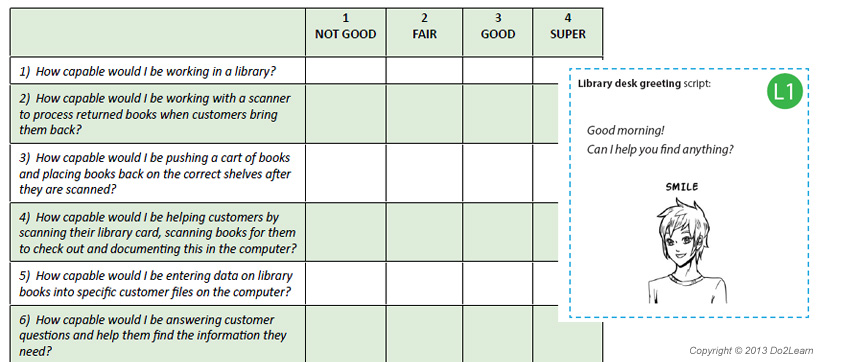
Finding a Job
The Finding a Job unit tackles the important first stages of the job application process: building a strong professional network, identifying references, preparing to fill out applications, and crafting a resume. These tasks require attention to detail, organization, and social communication skills, and these things must be practiced to ensure a positive job search experience. This unit provides many tools to help students improve their organizational skills and manage all of the information they need for their applications. When students have worked through the resources in this unit, they will be ready to submit professional applications that will impress employers.
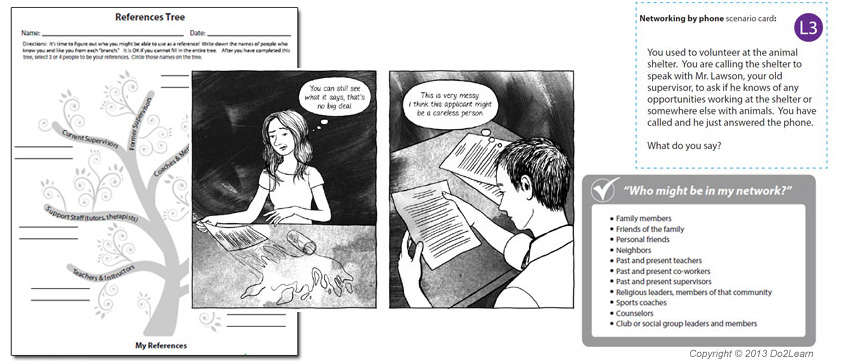
Getting a Job
In the Getting a Job unit, instructors will find tools to help their students locate available jobs, submit applications appropriately, and manage application follow-ups. This unit also covers the critical social and conversational skills needed to be successful at a job interview, from dressing appropriately to answering tricky ‘what if?’ questions. Act it Out scenario cards provide opportunities to practice these skills in a low-pressure environment, and coping cards and comics help students manage this often stressful stage of the job search.
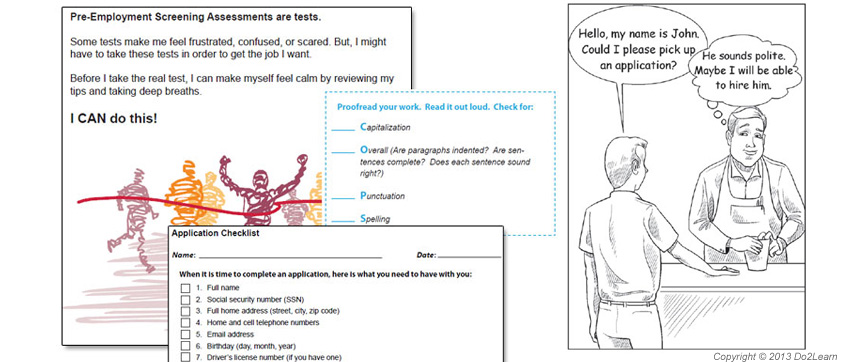
The Keeping a Job
The hard work doesn’t stop once a student has been offered a job, and many professional and social skills are needed to successfully keep a job. The Keeping a Job unit addresses the social communication, organization, self-direction, and self-regulation skills a student will need throughout the work day. Topics covered include understanding workplace hierarchies, conversational skills, working as part of a team, managing social relationships, and handling conflict. Instructors will also find resources for developing a students’ ability to manage stress, advocate for themselves appropriately, and address bullying. Finally, this unit provides information targeted to students with social communication or regulation differences, including resources on managing repetitive behaviors and handling transitions.
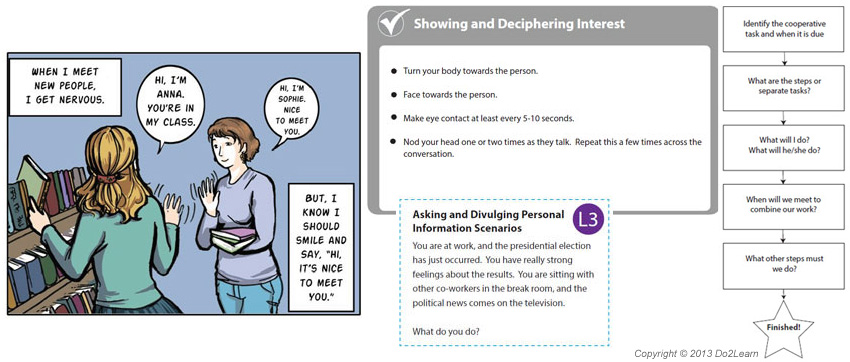
Quick Tools
Finally, the Quick Tools unit provides all of the self assessments available in the JobTIPS Toolbox PRO, organized by topic for ease in finding and use. These self assessments will be the core of the career training program, helping students understand their strengths and skills and allowing instructors to individualize instruction and track their students’ progress.
